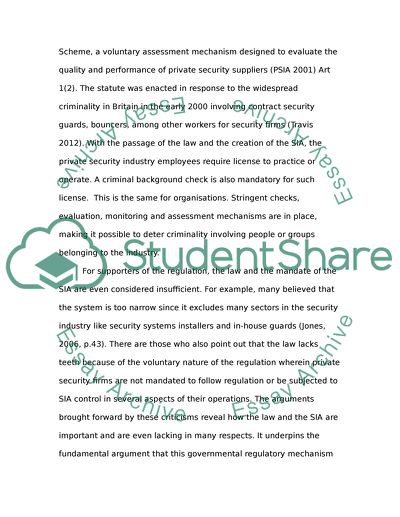Cite this document
(The Bane of Deregulation: The Private Security Industry Experience Essay, n.d.)
The Bane of Deregulation: The Private Security Industry Experience Essay. https://studentshare.org/politics/1612422-assess-the-view-that-reforming-the-regulation-of-private-security-industry-is-useless-what-is-required-is-deregulation
The Bane of Deregulation: The Private Security Industry Experience Essay. https://studentshare.org/politics/1612422-assess-the-view-that-reforming-the-regulation-of-private-security-industry-is-useless-what-is-required-is-deregulation
(The Bane of Deregulation: The Private Security Industry Experience Essay)
The Bane of Deregulation: The Private Security Industry Experience Essay. https://studentshare.org/politics/1612422-assess-the-view-that-reforming-the-regulation-of-private-security-industry-is-useless-what-is-required-is-deregulation.
The Bane of Deregulation: The Private Security Industry Experience Essay. https://studentshare.org/politics/1612422-assess-the-view-that-reforming-the-regulation-of-private-security-industry-is-useless-what-is-required-is-deregulation.
“The Bane of Deregulation: The Private Security Industry Experience Essay”. https://studentshare.org/politics/1612422-assess-the-view-that-reforming-the-regulation-of-private-security-industry-is-useless-what-is-required-is-deregulation.


